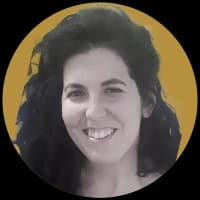Amid Mourning in Israel, Rabbi Aims To Deepen Bond With the Druze Community
Yaakov Kermaier, formerly the rabbi of Manhattan’s Fifth Avenue Synagogue, made aliyah to Israel nearly a decade ago. ‘Innocent children murdered while playing soccer embodies pure evil,’ he says.

A 41-year-old Arabic language teacher at Majdal Shams Middle School, Nader Halabi, says he was left speechless by the news that 12 of his students were killed in the Hezbollah rocket strike on the Golan Heights soccer field this past Saturday night. He tells The New York Sun that the entire Druze village is reeling in shock.
“I knew all the children personally. I taught each one of them at some point in our village’s middle school. I just don’t have words to understand how something like this could happen,” Mr. Halabi tells the New York Sun. “This doesn’t make sense.”
“Madjal Shams is a small community. Everyone knows everyone here. This just hurts so much,” he explains in a breaking voice.
A nephew of Mr. Halabi was among the 16 children who were injured in the rocket hit. All are hospitalized in different institutions across northern Israel, some in serious condition. “My nephew is in the intensive care unit at Rambam Medical Center,” Mr. Halabi says. “But his condition is beginning to stabilize.
Mr. Halabi says people from all sectors of Israeli society have been calling him nonstop to offer condolences and extend their support. He himself has been spending time with the grieving families.
One visitor who came to pay his condolences to the families in mourning this week was Yaakov Kermaier, formerly the rabbi of Manhattan’s Fifth Avenue Synagogue. The New York rabbi, who made aliyah to Israel nearly a decade ago, has worked hard to foster a close relationship with the Druze communities of northern Israel. He was horrified by the terror attack on Saturday night.
“Innocent children murdered while playing soccer embodies pure evil,” Rabbi Kermaier says. “These children are our children. I believe that Israelis across the country feel this intuitively.”
Indeed, in cities across the Jewish state, the Druze flag has been on display, its colors illuminating the likes of the Chords Bridge at the entrance of Jerusalem and the city hall at Tel Aviv.
Many other Israelis hung Druze flags outside their windows or on flagpoles of private homes. Rabbi Kermaier himself hung a custom-made Israeli and Druze flag outside of his Jerusalem home following the attack.
“It is important that the Druze community feel our solidarity and support,” he explains.
Rabbi Kermaier’s organization, Yakir, works to forge deeper connections between the Druze and Jewish communities as well as with other minority groups through special Shabbat events and other unique platforms that bring together people of different backgrounds.
The Druze number about 152,000 in Israel, according to Israel’s Central Bureau of Statistics, representing 1.6 percent of the population. Larger communities are found in Lebanon and Syria.
In Israel, the Druze community is officially recognized as a separate religious entity with its own courts and leadership. Its culture and language is Arabic. The Druze faith is an offshoot of Islam influenced by ancient Greek and Hindu philosophy and other traditions. It was founded in the Fatimid Caliphate in Egypt during the 10th century.
Until he decided to make aliyah to Israel with his family, Rabbi Kermaier had not known any members of the Druze community of Israel. Yet a preparatory trip before making aliyah to Israel in 2015 changed that. “The week we came to Israel, the Har Nof massacre took place. I paid a shiva visit to one of the bereaved families of the synagogue massacre, who I knew,” he says.
Rabbi Kermaier realized then that there was another family he had to pay a condolence visit to: that of a traffic police officer, Zidan Seif, from a Druze village in the Galilee who had died fighting the terrorists, preventing further bloodshed. He visited Zidan’s family in the Galilee and later hosted Zidan’s widow, Rinal, and her family at his Fifth Avenue Synagogue.
“It was from that point, I realized how important it is to establish a deeper friendship with the Druze community,” Rabbi Kermaier says. “The Druze communities are complex. Those living in the Galilee and Mount Carmel region serve in the IDF and are proud to be Israeli while most in the Golan Heights are not Israeli citizens. But we need to reach out to all.”
While Mr. Halabi is thankful for the outpouring of support he and the Druze community have received in the past few days, the teacher cannot help but think about how painful it will be to open the school year in September.
“To walk into the classroom and to think of all the students we lost in the summer, it is going to be very difficult,” he says.
Correction: Kermaier is the spelling of the rabbi’s last name. The spelling was incorrect in an earlier version.

